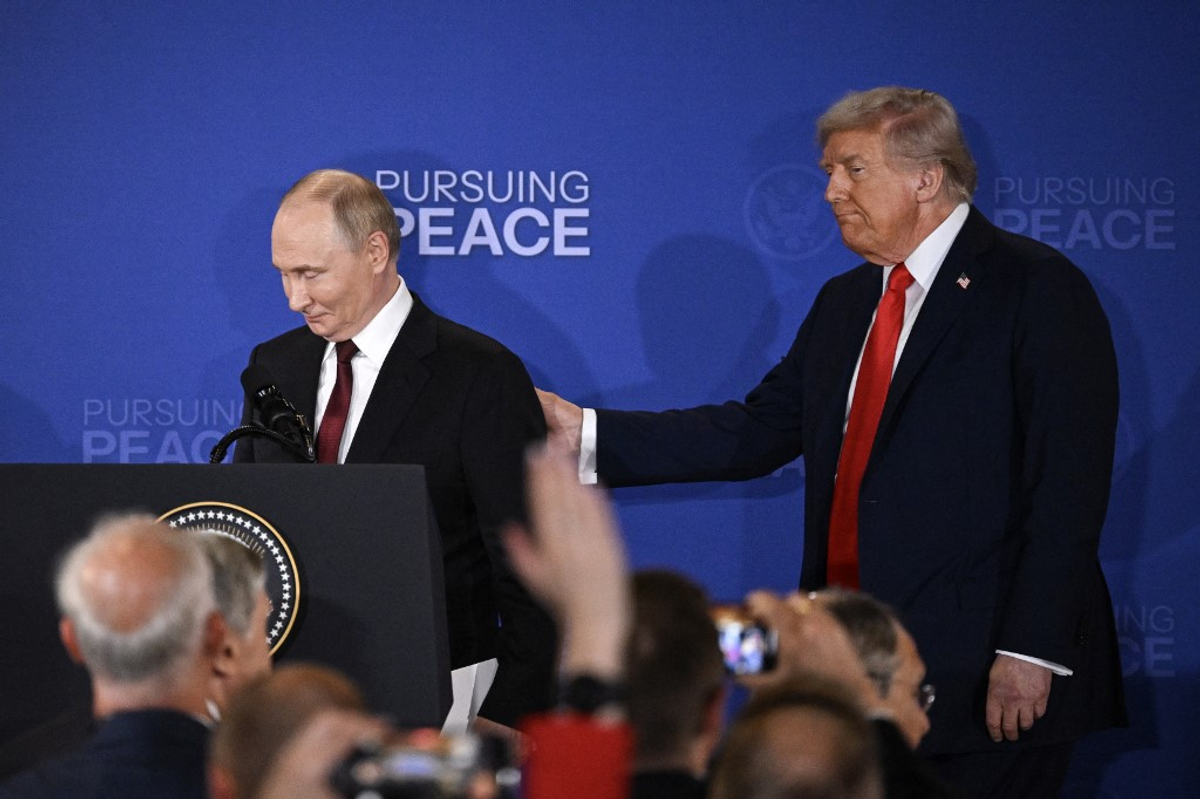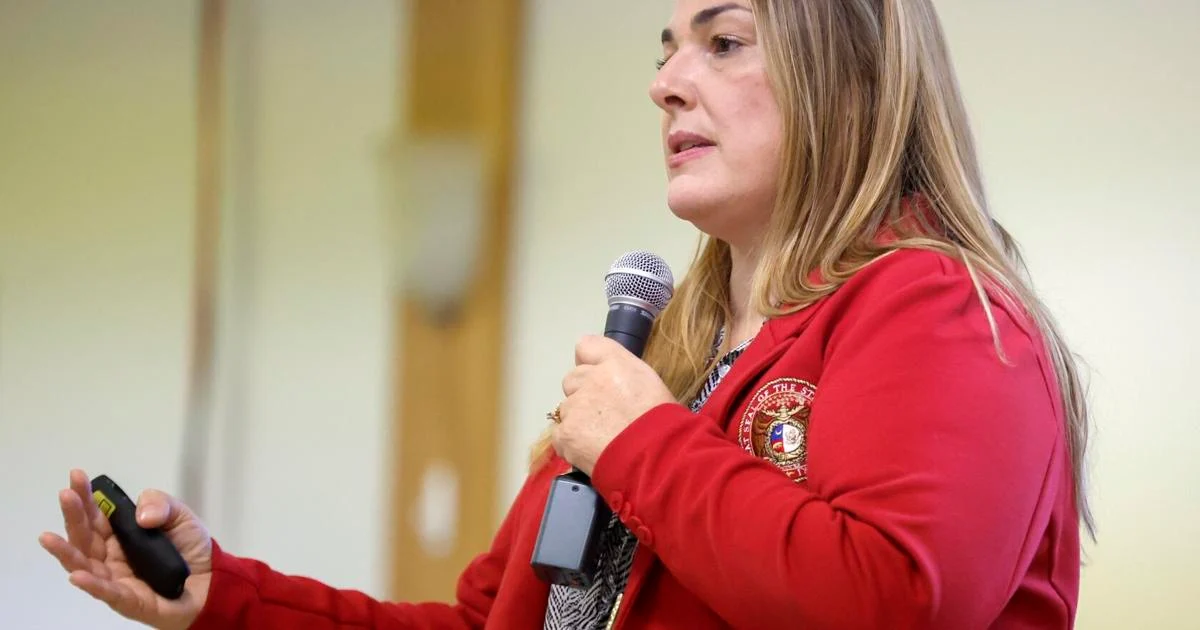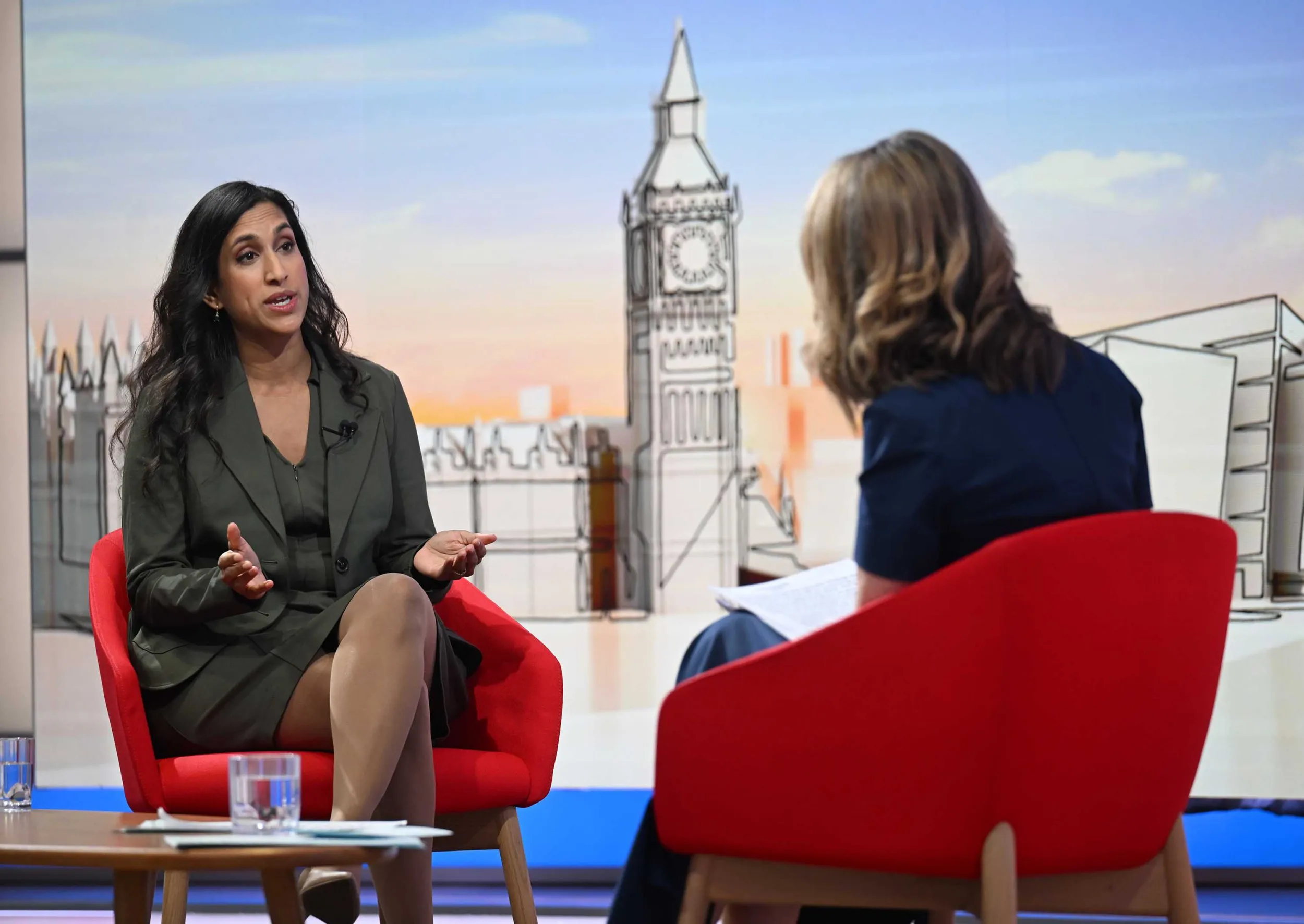Copyright kyivpost

What lies behind surprise US sanctions on Rosneft and Lukoil, and does this mark the start of systemic pressure on the Kremlin? In October 2025, the United States imposed new sanctions on Russia’s two largest oil companies, Rosneft and Lukoil, along with dozens of their subsidiaries, in an effort to increase economic pressure on Russia. The European Union and the United Kingdom followed suit by announcing new sanctions targeting the Russian energy sector. The sanctions, announced by the US Treasury Department’s Office of Foreign Assets Control (OFAC), were the first economic measures targeting Moscow from the Trump administration in his second term. They impose significant penalties on Russia’s energy majors and related entities. The U.S. Treasury Department imposed the sanctions citing Putin’s “lack of serious commitment to a peace process to end the war in Ukraine.” Trump, for his part, explained that he had “waited long enough” and finally felt that the time had come. “To be really honest, all I can say is that whenever I talk to Vladimir, we have fruitful discussions that end there”, he remarked. Citing a lack of success in diplomatic efforts, US President Donald Trump said that he had canceled his scheduled meeting with Russian President Vladimir Putin in Budapest, Hungary. “We cancelled the meeting with President Putin,” Trump said to reporters at the White House on Wednesday. “It just didn’t feel right to me… We didn’t seem to have a chance of reaching our destination. So I called it off, but we’ll do it later,” Trump said. Instead, he is scheduled to meet with Chinese leader Xi Jinping in South Korea next week to discuss, among other things, Beijing’s potential mediation in settling the Russa-Ukraine war. There are more good news coming from the Capitol Hill. According to former Voice of America journalist Ostap Yarysh, the U.S. Senate Foreign Relations Committee approved three bipartisan bills on October 22, 2025, that directly affect Ukraine. The first could designate Russia as a state sponsor of terrorism. The designation would be triggered if Russia fails to return the thousands of Ukrainian children abducted and deported since its 2022 invasion. The second bill amends the 2024 Rebuilding Economic Prosperity and Opportunity (REPO) for Ukrainians Act. The new measure aims to expedite the transfer of approximately $5 billion in frozen Russian assets currently under U.S. jurisdiction to Ukraine for its defense and reconstruction. The bill would require the U.S. President to regularly release frozen Russian assets to Ukraine. Under the proposal, the President would be empowered to transfer at least $250 million every 90 days. Finally, the Senate Foreign Relations Committee unanimously passed the “STOP China and Russia Act of 2025”. This bill aims to impose sanctions on Chinese entities and individuals for supporting Russia’s war of aggression against Ukraine. The bill mandates sanctions on entities and individuals in China that supply Russia’s defense industrial base, particularly those involved in transferring dual-use technologies. The legislation specifically targets the transfer of technologies that have both civilian and military applications, such as radar systems, aviation components, satellite imagery, and electro-optical equipment. “All the initiatives have bipartisan support. The legislation now awaits consideration by the full Senate after the shutdown ends,” Yarysh reported. The European Union and the United Kingdom followed suit by announcing new sanctions targeting the Russian energy sector. The European Union’s 19th package of sanctions against Russia was officially adopted on October 23, 2025. The new sanctions focus on key sectors of the Russian economy, including energy, finance, and the military-industrial complex, with measures designed to close loopholes and target entities in third countries that help Russia circumvent existing sanctions. The package includes a phased-in ban on Russian liquefied natural gas (LNG) imports, with long-term contracts ending by January 2027 and short-term contracts within six months of the sanctions’ entry into force. Moreover, sanctions were extended to 117 additional vessels in Russia’s “shadow fleet,” prohibiting their access to EU ports and services. Entities supporting this fleet, such as a Lukoil affiliate and maritime registries, were also targeted. The EU sanctioned two refineries in China, an oil trader involved in purchasing Russian crude, and a Tatarstani conglomerate in the Russian oil sector. Furthermore, the existing transaction ban on Rosneft and Gazprom Neft was tightened by removing exemptions for their oil and gas imports. The decision by Donald Trump, who throughout his political career built the image of a president capable of “getting along” with Putin, to impose the first sanctions against Russian oil giants during his second term came as a surprise to many. The cancellation of the announced meeting in Budapest only reinforced the impression of a tectonic shift. What was the catalyst that forced Trump to move on from the rhetoric of “personal chemistry” to real pressure? Experts see this as not one, but the whole mix of factors – from personal humiliation to pragmatic domestic political calculation. Ukraine’s onetime top diplomat Volodymyr Ohryzko believes that the trigger was Putin’s own behavior. “I think this is finally Trump’s transition from words to at least some real actions. During all the months of his second term as president he openly avoided any moves towards Russia. But after Putin once again humiliated Trump in public and again openly spat in his face, it seems that this was the “last straw”. Trump has realized: he had to do at least something to save his own reputation. And he did.” Political commentator Oleh Sharp supplements this suggestion by pointing to a specific event at the White House. According to him, an influential bipartisan delegation visited Trump on October 22. “The initiator of this was Senator Graham. Moreover, he invited representatives of the US oil and military lobby, as well as the Secretary of State and the Minister of Finance. In particular, they came with a report from the US embassy in Kyiv on today’s night attack on civilian targets in Ukraine.” This meeting, according to Sharp, took place immediately after Trump’s long conversation with NATO Secretary General Mark Rutte. There was only one goal -- “to finally make the American president stop believing the falsehoods he’s been told by Putin.” Witnesses to the meeting, according to the commentator, conveyed the president’s emotional reaction thus: “I will never pick up the phone again if this f**king Putin calls me”. Political expert Yuri Bohdanov, for his part, notes that pressure on Trump came from within the Republican Party. “He is being held back by members of his entourage, particularly Marco Rubio and other career politicians and diplomats. They convinced Trump that constant flirting with Putin is damaging his approval rating and undermining his domestic authority and global credibility.”Bohdanov recalls Rubio’s recent conversation with [Russian Foreign Minister Sergei] Lavrov, after which “it became clear that Putin has no intention to hold any meaningful negotiations, but is only simulating being ready for them.” This, according to the expert, forced Washington to move on “to tougher and more robust actions.” Political scientist Oleh Sahakyan suggests looking at the situation more broadly, pointing to a combination of external and internal circumstances that have developed extremely successfully for Ukraine. “This is both a change in public sentiment in the United States and a slow start to the Senate campaign ahead of the midterm elections,” he notes. Added to this are foreign policy factors, in particular, “a reception by the British King Charles III, who, relatively speaking, ‘opened Ukraine to Trump.’” Sahakyan emphasizes that, unlike many in the United States, the British Crown sees Ukraine “not as a fragment of the former USSR, but as a full-fledged state with dynastic, historical and political ties with Britain. It is for a reason that a century-long agreement was concluded between London and Kyiv, which testifies: for the British Crown, Ukraine is a subject of history that will exist through the century. Therefore, underestimating it (Ukraine, – ed.) is a strategic mistake,” the expert continues to note. A key factor, according to Sahakyan, was the most recent visit by the Ukrainian delegation led by Volodymyr Zelensky to Washington, which brought along “specific agreements regarding the military-industrial complex”. “The US military-industrial complex remains a serios player not only economically, but also politically: it is the Republican Party’s traditional base of influence. And in those states where midterm elections to the Senate will soon be held, the votes of defense industry workers can decide the fate of candidates. So Trump simply cannot ignore this factor”, explains the political scientist. Thus, Zelensky’s visit, in his opinion, “took place at the perfect moment” to “materialize” this potential into the new logic of American politics. “PROLOGUE, NOT THE FINALE”: IS THIS A “ONE-TIME ACTION” OR THE BEGINNING OF PRESSURE? The pressure catalysts had no sooner worked out than the main question arose: is this move by Trump a systemic U-turn, or is it just a situation-driven emotional reaction that will not be followed by consistent actions? Simply put, is it a “one-time action” or “start here, and the rest will be a lot easier”? Here, expert opinions are divided, ranging from cautious optimism to outright skepticism. Oleh Sahakyan belongs to the camp of optimists. “Well… first of all, it is important to start. And Trump went to this step by step ... But now we are already seeing full-fledged sanctions – the first real ones, adopted by the Trump team. So this is more like a prologue than a final action. The beginning of a new stage.” As evidence of the systemic nature of the decisionі made, Sahakyan points to the immediate response from Congress, where “three bills were immediately put in motion, one of them designating Russia as a state sponsor of terrorism. This is no longer a spontaneous reaction, but a systemic process that is obviously only gaining momentum.” In addition, he draws attention to the shift in the president’s rhetoric: “Trump is for the first time publicly voicing the position that a ceasefire should come first, followed by negotiations. This is precisely the Ukrainian formula, not the Russian one. Moscow, on the contrary, is seeking political negotiations without stopping hostilities.” Yuriy Bohdanov is of a completely different opinion. He is not inclined to consider this a “final turn to adequacy” on the part of Trump. “In my opinion, the sanctions imposed by the US are also a kind of invitation to negotiations. Trump, as before, is oscillating between two poles. On the one hand, he understands that Putin is a threat and is constantly deceiving him, and continues to think in categories like ‘Vladimir, let’s make a deal’ on the other”. Instead of a complete U-turn by the US, Bohdanov sees “a continuation of the same ‘hybrid’ line of behavior,” where Trump is trying to force Putin to the negotiating table, but “gradually comes… to the understanding that this can only be achieved by force, through tough coercion.” The expert predicts that the process of increasing pressure “will proceed gradually. One should not expect lightning-fast pace. ... So far, there is no reason to believe that Trump has finally realized everything... There are still negotiations with China ahead... so new sanctions will be imposed step by step. However, the course has already been set.” At the same time, the expert points to an important shift: “the main thing – and this, in my opinion, is really important – is that now it is Russia that has become the object of pressure, and not Ukraine, as it was before. This is already some progress.” Oleh Sharp comments, “I would like to warn against any euphoria. Trump is not the kind of person who can be called consistent.” The expert believes that “the temporary trend is set correctly,” but all hope “lies only in Trump’s anti-Russian entourage and Putin, who, with his cunning, is able to shrivel up even a loyal supporter such as Trump.” Finally, Volodymyr Ohryzko agrees that this is only a “transition... from words to at least some real actions.” He links future success with further steps. “The real effect will be there if the promised thing is added to this – the cessation of Russian oil purchases by India by year’s end... And even more so – if Trump agrees with the Chinese leader to jointly exert pressure on Putin.” And, of course, let’s not forget about the most effective “sanctions” - the daily strikes by the Ukrainian Defense Forces, which are already significantly undermining Russia’s military-economic potential. The diplomat concludes: “If all these factors come together, they can quite soon, perhaps even by the end of the year, significantly limit Putin’s ability to wage war. Because until Putin feels real pressure, he will not stop. He cannot be persuaded. He can only be forced. And if the current measures bring this moment of coercion closer, that will already be a success.” SYNCHRONOUS STRIKE: HOW IS THE “PERFECT STORM” FROM THE USA AND THE EU GOING TO HIT RUSSIA? What makes the current situation really unique is not only the first sanctions imposed against Moscow by the second Trump administration, but also their almost perfect synchronization with the actions of European partners. While Washington was hitting Rosneft and Lukoil, Brussels approved its 19th package of sanctions, creating a cumulative effect that experts have already dubbed a “perfect storm” for the Russian economy. Washington’s blow is targeted and powerful. According to the US Treasury Department, restrictions are being imposed against Russia’s two largest oil companies and “dozens of their subsidiaries”. This makes it difficult for them to access Western technologies, financing and insurance. Almost simultaneously, the European Union delivered its own blow. According to EU High Representative Kaja Kallas, the EU’s 19th package of sanctions against Russia included additional measures targeting the Russian energy sector, in line with US and UK actions. The most painful measure for the Kremlin is a phased-in ban on Russian liquefied natural gas (LNG) imports, with long-term contracts ending by January 2027 and short-term contracts within six months of the sanctions’ entry into force. The sanctions also target specific cryptocurrency platforms and assets linked to Moscow’s war efforts, including a rouble-backed stablecoin and its associated entities. Transactions with eight banks and oil traders in Central Asia, the UAE, and Hong Kong involved in sanctions circumvention are now prohibited. Eleven individuals involved in the abduction of Ukrainian children were sanctioned. Measures similar to those on Russia were extended to Belarus, including sanctions on its military-industrial complex and crypto payment services. Russian diplomats traveling within the Schengen area must now inform member states in advance. The European Union imposed sanctions on 117 additional vessels belonging to Russia’s “shadow fleet”. These tankers are used to bypass sanctions and transport Russian oil, military equipment, and stolen Ukrainian grain. Importantly, the European Union imposed sanctions on specific banks in Belarus and Kazakhstan, as well as four Chinese companies. The measures target entities involved in sanctions circumvention and financial support for Russia’s war effort. This synchronization, according to Oleh Sahakyan, is the main feature of the moment. “What is unique is that the United States sanctions were introduced synchronously with the 19th package of European restrictions. Moreover, they are coordinated with the already existing British sanctions... Now we see almost perfect coordination.” He paints a vivid picture: “Where American sanctions fall short, European ones take over. Where European ones fail to hit specific companies, American ones strike. And when both of these fronts fail to hit seaborne supplies, the British join in (as early as October 15, the UK imposed sanctions against Rosneft, Lukoil, and the Russian “shadow fleet”). As a result, a cumulative effect is formed – something like a “perfect storm” for Russian oil exports.” This “storm” has already caused panic among key buyers of Russian oil. As Reuters reports, “Chinese state-owned oil companies are suspending purchases of Russian oil by sea due to concerns over potential Western sanctions.” Bloomberg confirms that the sanctions “have caused a shock in China.” The outlet explains Beijing’s dilemma: Chinese refineries are forced to either maintain supplies, risking being subject to “serious secondary penalties,” including “being cut off from Western banking systems and access to dollars,” or, by complying with the sanctions, they “will lose access to oil at significantly reduced prices.” Yuri Bohdanov also points to the beginning of “synchronization, in particular regarding the shadow Russian fleet”, the shared policies of the US and the G7 countries regarding price caps on Russian oil, and the practical consequences for Russian companies in Europe: “In particular, we are talking about the Lukoil plant in Bulgaria, sales to Hungary, some oil refining in Romania (...) We can expect that the Americans will gradually catch up with the Europeans in sanctions policy. And, perhaps, they will even begin to set the pace and demonstrate leadership on this matter”. RESPONSE FROM THE KREMLIN: NUCLEAR BLACKMAIL AND SHOW-OFFS In response to the coordinated attack by the West, Moscow, according to experts, will resort to its traditional two-track tactics: public bravado and threats, combined with non-public attempts to “buy time” and simulate readiness for dialogue. The most vivid illustration of this has been described by Volodymyr Ohryzko. “Actually, the response has already come from [Dmitry] Medvedev, [the deputy chairman of Russia’s Security Council]. “This is his conflict now, not the senile Biden’s,” Medvedev wrote, referencing Trump’s own previous descriptions of Biden. He added that now, instead of all these “pseudo-deals” and agreements, they will strike wherever possible to “smash the Bandera regime.” The diplomat is convinced that Medvedev in this case “actually conveys Putin’s opinion.” Accordingly, Ohryzko predicts, we should “expect a clear escalation of tensions.” He points to the already noticeable “‘planned’ exercises of the Russian nuclear triad” and footage of Putin listening to military reports. “This all is classic ‘scarecrows’, pure spectacle… In fact, the whole Russian narrative will be reduced to nuclear threats. But officially… they will continue to talk about ‘peace,’ ‘contacts,’ ‘dialogue.’” Yuri Bohdanov paints a similar picture. “I think that at the level of the most influential people we will hear the usual mantras: ‘we will survive this too,’ ‘it is the Ukrainians and Europeans who are trying to drive a wedge between us and Trump,’ ‘and we are with Donald, as always, in our souls.’” On a parallel track, the expert continues, the second echelon will operate: “Medvedev and other figures of the second echelon will once again start spreading their “alcohol induced messages” that America will either eventually adhere to the Russian position or “burn in a nuclear flame.” All this will be accompanied by the propaganda narrative like “we cannot be broken.” Bohdanov gives a clear assessment of this: “In fact, it is more of a show-off. The economic situation in the Russian Federation is deteriorating, resources are diminishing, and the chances of any tangible victory over Ukraine are practically nonexistent.” Oleh Sahakyan agrees that the Kremlin’s rhetoric will not change. “They will say the same thing again: ‘The whole world is at war with us.’” The second line will be the accusation of the West: “You see what scoundrels they are... The Europeans are evil, and war hawks have gathered around Trump, who have burned America’s last chance for adequacy.” Moscow’s strategic task in this situation, according to the political scientist, is extremely simple: “Buy time. Slow down any tough measures against the Russian economy... The days are weary and the night is drear. “ The Trump administration’s first sanctions against Rosneft and Lukoil, the Kremlin regime’s energy pillars, have undoubtedly become a landmark event. Regardless of whether this step is a “prologue” to a new, tougher policy, as some experts believe, or just a “hybrid” attempt to force Putin to negotiate, the fact remains: the time of passive waiting by Washington is over. The key factor for success is not so much Trump’s move in itself, but its unprecedented synchronization with the 19th package of EU sanctions and the actions by the United Kingdom. This “perfect storm” is already causing real troubles for Russian exports, making nervous even Moscow’s key partners such as China. Russia’s response, which oscillates between nuclear threats from the “second-echelon” and “show-off” mantras, suggests that the strikes have achieved their goal. While no one is expecting consistency from Donald Trump, one thing is clear: his “window of opportunity” has narrowed, and the cumulative pressure on Russia has begun to take on the features of a coordinated Western strategy for the first time in a long time. And in this new reality, it is Russia, not Ukraine, that has become the object of coercion. See the original here.



